Mangaluru, Jan 1: Hundreds of activists of Social Democratic Party of India on Friday, January 1, staged a demonstration in front of the office of deputy commissioner in the city to register their protest against decision of Mangaluru city to ban the entry of Islamic scholar Dr Zakir Naik into Mangaluru.
The protesters slammed city police and Congress government of state for failing to differentiate between religious leaders and communal hate-mongers. They also accused the police and administration of bowing down to the pressure of Sangh Parivar.
Dr Zakir Naik was supposed to deliver a talk on ‘What is Islam’ at an interfaith peace conference previously scheduled for January 2 at Nehru Maidan in Mangaluru. However, the South Karnataka Salafi Movement (SKSM), the host of the event decided to postpone it by two months as per the advice of Karnataka home minister G Parameshwara in the wake of controversial ban order.
Addressing the protesters, Ilyas Mohammed Thumbay, SDPI general secretary, said that the state government, Dakshina Kannada district administration and police have been green signal to Sangh Parivar to take law into their hands.
“Neither district administration nor the police department took action against the RSS when its cadres held public meeting and took out march holding batons and swords in hand in Moodbidri violating prohibitory orders. On the other hand the police banned the entry of Zakir Naik and clamped prohibitory orders when a Muslim organization decided to host a peace convention,” he complained.
He also said that SDPI was denied permission by the district administration to hold awareness campaign against communal terrorism. “We wanted create awareness against communal terrorism. But, you are indirectly supporting communal terrorists by denying permission for such campaigns,” he said.
Mr Thumbay went on to claim that the Congress ministers in coastal Karnataka including Dakshina Kannada district in charge minister B Ramanath Rai are afraid of Sangh Parivar elements.
He also recalled a media sting operation wherein MLC Ganesh Karnik was caught admitting that the RSS had managed to strengthen its hold on police department and that the 60 per cent of police personnel hail from RSS back ground.
Dalit Sangharsha Samithi leader Ananda Mitthabail, former mayor K Ashraf, SDPI leaders Abdul Latif Puttur, Alphonso Franco, Akram Hasan, Haneef Khan Kodaje, Ataullah were present among others.



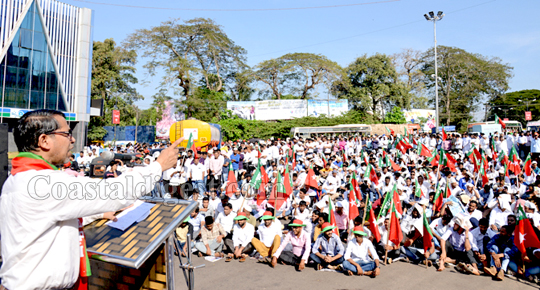




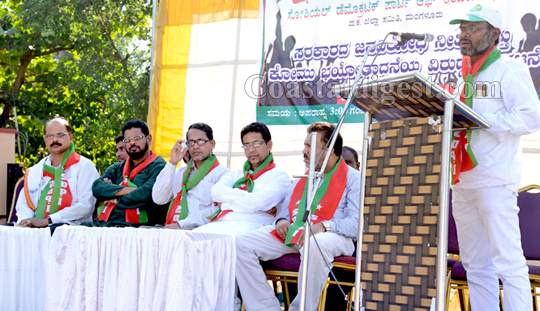
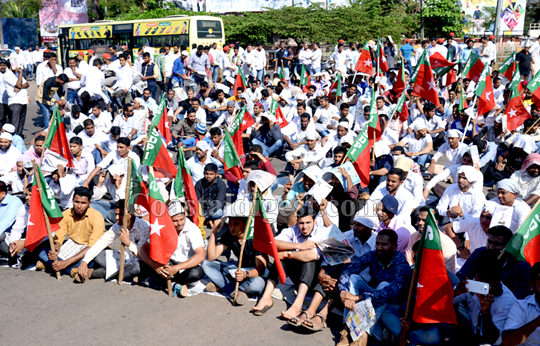
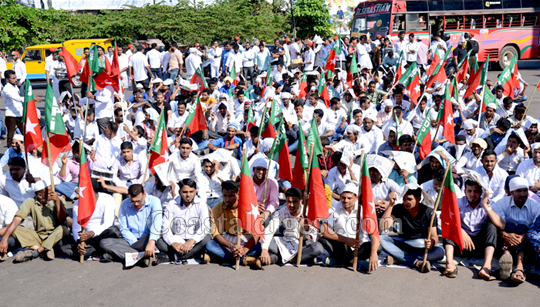
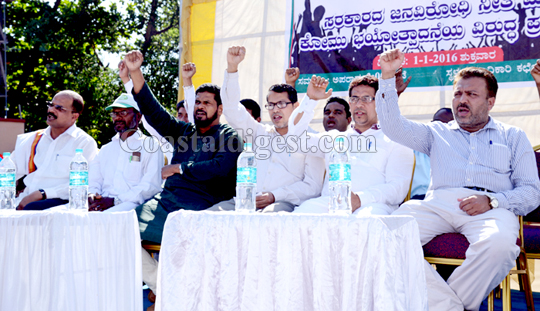
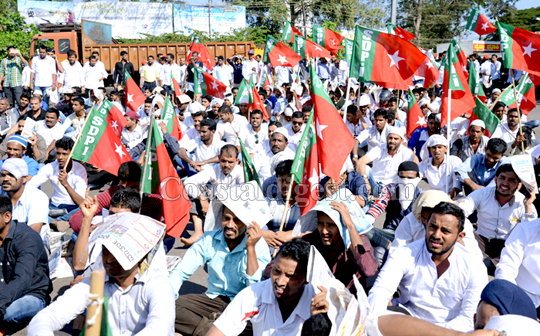

Comments
I think ....this is blackmail policy of political parties..............this war is between Indians and curropted Poltcal Parties
SDPI is right in their vision and agenda . they include us even being Hindus
Congress government is dangerous than BJP Government everywhere chaddi now new home minister came and he wants to immediatly withdraw the case against mutalik (the pub attack and church attack case filed at BJP ruling time even that also he want to withdraw he want to give him clean chit what a nonsense then how we expect peace in costal karavali. why unnecesserily banned zakir naik to enter Managalore. i think next time we need to vote BJP
Congress is cheating minorities, especially muslims
We appreciate that SDPI is raising their on every occasion when injustice was done by any person or department. Zakir Naik's talks are academic and full of knowledge. He has all the rights to say his words. He never created law and order problems. Administration should reign on those who are causing violence, not a scholar...
Add new comment